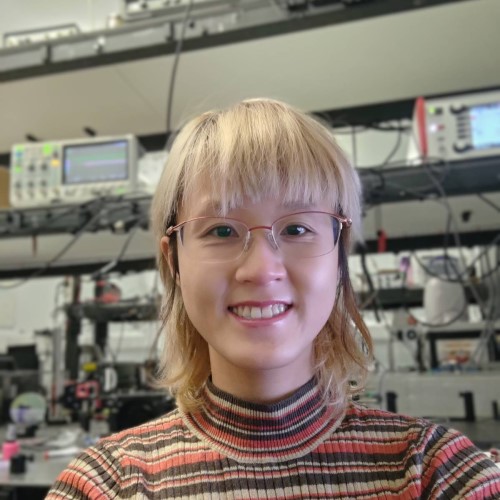About This Webinar
Set for completion in 2028, the Extremely Large Telescope (ELT) promises a new era in astronomical exploration with its state-of-the-art technologies and larger than ever light collection area. With unprecedented precision and sensitivity, it enables new scientific ventures such as the search for Earth-like planets and the study of the first galaxies ever formed, deepening our understanding of the universe and addressing questions about its fate and the possibility of extraterrestrial life.
In this webinar, Yuk Shan Cheng of Heriot-Watt University explores the important role of ELT's ANDES spectrograph and its need for a high-precision frequency calibrator in order to pursue these exciting ventures. She focuses on the development of astrocombs, which are laser frequency comb systems that can provide thousands of stable, atomically referenceable, and evenly spaced calibration lines. Despite their demonstrated success in labs and various telescopes worldwide, integrating astrocombs into modern telescope facilities presents challenges, including aligning their mode spacings with the spectrograph's resolving power and achieving broad spectral coverage, particularly in the UV-blue/green wave band. This presentation covers the approaches to these challenges, recent implementation at the Southern African Large Telescope, and advancements in astrocomb technology at Heriot-Watt University, including the development of the first continuous UV-blue/green astrocomb.
Who should attend:
Researchers, engineers, and manufacturers who are interested in learning more about astrocomb development and optics in aerospace. Those who use metrology, optics, telescopes, and spectroscopy in their work. Those who are interested in the applications of high-precision frequency calibrators and laser frequency combs.
About the presenter:
 Yuk Shan Cheng, Ph.D., studied physics and received her bachelor’s and master’s degrees from the University of St. Andrews and Heriot-Watt University. She then joined the Ultrafast Optics Group at Heriot-Watt and received her doctorate in 2021, investigating Ti:sapphire-pumped optical parametric oscillator astrocomb, along with exploration of a variety of optical cavity stabilization approaches. With six years of hands-on experience on astrocomb and its related areas, she is currently working as research associate in the ELT-Astrocomb project at Heriot-Watt University, researching approaches toward full astrocomb systems for the future ELT-ANDES and HARPS3 instruments.
Yuk Shan Cheng, Ph.D., studied physics and received her bachelor’s and master’s degrees from the University of St. Andrews and Heriot-Watt University. She then joined the Ultrafast Optics Group at Heriot-Watt and received her doctorate in 2021, investigating Ti:sapphire-pumped optical parametric oscillator astrocomb, along with exploration of a variety of optical cavity stabilization approaches. With six years of hands-on experience on astrocomb and its related areas, she is currently working as research associate in the ELT-Astrocomb project at Heriot-Watt University, researching approaches toward full astrocomb systems for the future ELT-ANDES and HARPS3 instruments.